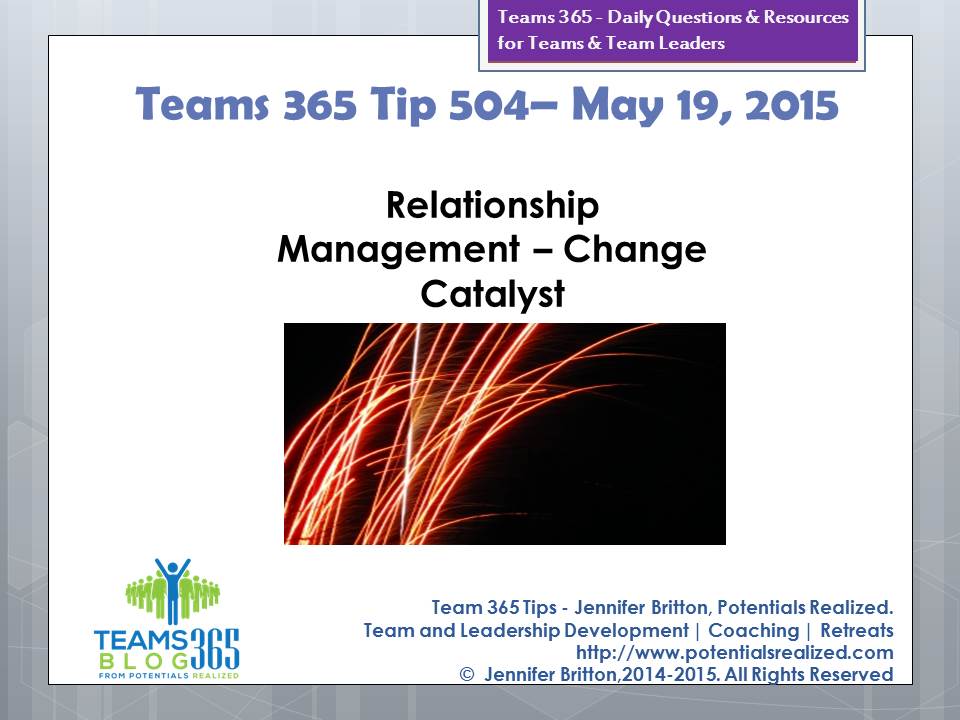According to Goleman, Boyatzis and McKee, leaders high in this competency "are able to recognize the need for change, challenge the status quot, and champion the new order. They can be strong advocates for the change even int he face of opposition, making the argument for it compellingly. They also find practical barriers to change".
As you think about your skills, where do they reside in this area of being a change catalyst?
Part of being a change catalyst is also recognizing how people go through change. Roger's change model identified six different stages or ways people may approach the change process:. You may have members on your team who are innovators (those that are eager to create change), early adopters (those who embrace the change early on), early majority (those who get on the bus relatively early), late majority (those who slowly adapt/get on the bus with change) and the laggards (those who resist change). Being aware of who will be advocates for change on the team is just as important as recognizing those who might need more support, conversation/attention throughout any change process.
What do you recognize in yourself about how you respond to, and initiate, change?
Best wishes,
Jennifer
Jennifer Britton, MES, CPT, PCC
Potentials Realized
Supporting Team Leaders to do their best work, one conversation at a time
Coaching Skills Training | Teamwork | Leadership
Author of From One to Many: Best Practices for Team and Group Coaching(Jossey-Bass, 2013)
(416)996-TEAM (8326)
Have a great week,
Jennifer

 RSS Feed
RSS Feed





